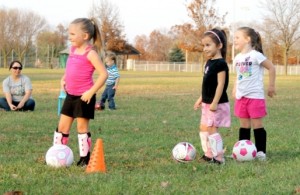Play is an activity where children engage in for fun and recreation. It is an essential part of every child’s life where they not only enjoy fun activities, but also explore and learn at the same time. It has long been considered a key feature of early childhood education. It is one of the ways where children learn about themselves, their community and make sense of the world around them.
For children, playing and learning is one and the same, it is their way of life. What seem to be just pure expressions of joy you see in children can mean a lot to them. Play in early childhood is not just a natural activity but it is the best foundation for educational development. As babies grow older they develop physical skills such as grasping, crawling, walking, running, climbing etc. They learn how to handle toys or objects and later on interact with others through play. Many skills are developed and improved through play.
Through play, children can practice social skills, learn languages, do creative thinking, gather information or even explore relationships. Play can help a lot in developing skills a child needs for success in school and life. Parents have a very important role in encouraging “Learning through Play” in children. That is why parents should understand the essential role they play in contributing to the promotion of their children’s holistic and healthy development. Here are a few tips to guide parents in encouraging learning through play in children:
-Give them time and space to play.
It is very important that children should be given uninterrupted periods of time to discover and explore through play.
-Choose good toys that would enrich and extend learning through play.
Fun interactive games and other educational toys can help children develop problem solving skills in addition to reading and writing skills as well.
-Take time to play with your children.
Parent-Child Interaction is proven to help nurture a child’s learning and development. By creating moments for you and your kids to interact through play you are also creating opportunities for learning. Activities such as sharing stories can improve a child’s language skills or helping them with simple art activities can also improve their creativity. This way you are not only helping them learn but you are also creating a strong bond with your children.
-Let them play with other children.
Social skills are developed as children interact with others. Children group games can help children develop interpersonal skills, such as following rules, cooperation and taking turns. Research shows that indeed early childhood experiences such as playing have a major impact on brain structure. Positive play experiences can literally shape the way children learn, think, behave, and interact with others.

